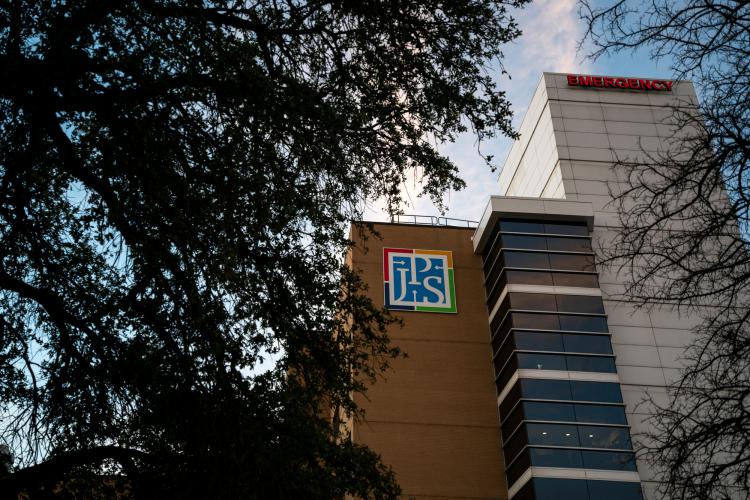
JPS Health Network team members are finding new ways to shoulder the load and handle all their responsibilities of taking care of patients, whether they have COVID-19, cancer, heart disease or a traumatic injury. This month, those adaptations included virtually completing a required stroke care certification.
“This was definitely something new,” said RN Laurie Speirs who co-coordinates the JPS stroke program with fellow RN Bernadette Grant. “We were allowed the option of doing things virtually, or we could have waited to see how things went with COVID-19 in hopes things could go forward as usual. It was different preparing for something we’ve never done before. But we wanted to move forward.”
DNV-GL Healthcare, a Norwegian healthcare evaluator that surveys and certifies more than 500 hospitals in the United States worked with JPS to conduct the virtual survey. It was a winning situation for both the inspectors and for JPS.
“They need to be able to check to make sure that we are taking care of patients in accordance with standards that have been set. They’re looking to see if our patient outcomes are better, worse, or similar to other hospitals,” Speirs said. “They told us they were very happy with what they saw.”
Some of the comments included in BNV-GL’s report were that JPS has an “extremely high functioning stroke center” and that the health network and its team of caregivers “set examples for other centers to follow.”
Strokes don't stop just because we're in the midst of a global pandemic.
Grant said it was rewarding to hear such positive remarks – especially after the uncertainty of conducting a virtual survey, a first for JPS.
“To see what we’re doing is validated is very rewarding,” Grant said. “One of the comments was that we should all feel a sense of pride because our care is up there with the best hospitals in the country.”
Speirs and Grant said the bottom line isn’t accolades, however. It’s being prepared when a patient comes through the door suffering from stroke systems. The pair said JPS has worked hard to be on the cutting edge of stroke technology and care because a swift and effective response can make all the difference in a person’s recovery.
“It was important to forge ahead with the virtual survey,” Speirs said. “Strokes don’t stop just because we’re in the midst of a global pandemic.”
She said that in the first two months of the COVID-19 fight that people with stroke symptoms were refusing to come in for care because they were afraid of catching the virus, potentially risking permanent brain damage or even death. In June, however, numbers of stroke patients coming through the door returned to typical levels.
“Because of the level of care we provide, a lot of people request to come here, even though there are three comprehensive stroke centers in Tarrant County,” Speirs said. “Stroke care is important because it seems they happen more often than they used to. There’s more high blood pressure. People need to make sure they seek care if they have stroke symptoms, and they need to take care of themselves which includes making sure their medication doesn’t run out.”
Use the acronym BE FAST to remember the signs of a stroke so you know what to do if you – or someone near you starts to have symptoms:
B - Balance
Is the person suddenly having trouble with balance or coordination?
E - Eyes
Is the person experiencing suddenly blurred or double vision or a sudden loss of vision in one or both eyes?
F - Face Drooping
Does one side of the face droop or is it numb? Ask the person to smile.
A- Arm Weakness
Is one arm weak or numb? Ask the person to raise both arms. Does one arm drift downward?
S - Speech Difficulty
Is speech slurred, are they unable to speak, or are they hard to understand? Ask the person to repeat a simple sentence like, “The sky is blue.” Is the sentence repeated correctly?
T - Time to call 9-1-1
If the person shows any of these symptoms, even if the symptoms go away, call 9-1-1 and get them to the hospital immediately.
